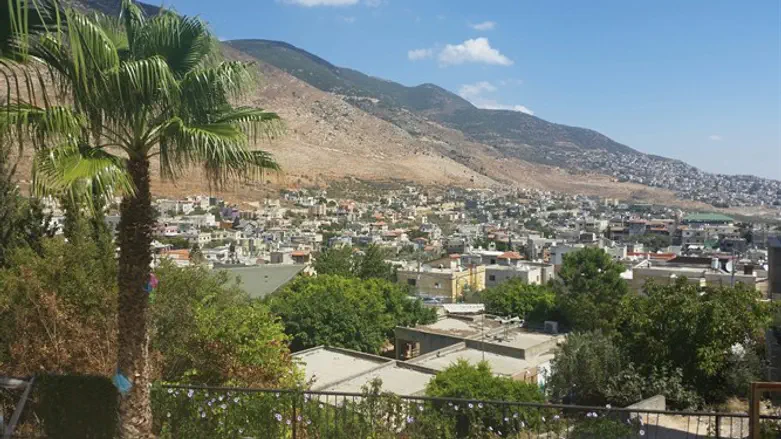
Another Israeli desalination plant is scheduled to be built soon – but residents of three western Galilee towns say it's unnecessary, harmful, and will stunt their growth.
Ever since Israel's Water Authority announced its plans to build the country's seventh desalination plant in the Galilee – the sixth one is scheduled to begin operations next year – local residents have expressed their opposition via demonstrations, protests and public statements.
Just two weeks ago, during the Sukkot holiday, they erected what they said was the world's largest Sukkah – a half-acre in area – on the agricultural fields where the plant is slated to be built.
The area in question is just some 250 to 400 meters from the homes of three communities: Regba, Nes Amim, and Kibbutz Lochamei HaGettaot. All three of them have no other directions in which to expand, such that their growth will be all but blocked, sources in the Mateh Asher Regional Council say.
The Water Authority says that other alternatives were weighed and found to be unsuitable, and that the importance of desalinated water in Israel is not a matter of dispute. It says the new plant will improve the water supply to Haifa and neighboring areas.
But the residents do not agree. They say that Israel's five existing desalination plants – in Ashkelon, Ashdod, Sorek, Palmachim and Hadera – already provide 700 million cubic meters of water, and that the new plant scheduled to open next year, Sorek 2, will increase the supply to 850 million. This is way beyond the government-declared goal of producing 750 million cubic meters by the year 2020.
The opponents of the plan also maintain that while the other plants are built within 1.2 kilometers of the sea, the new plant would be some four kilometers away. This would of course necessitate even longer pipelines by which to draw water from the Mediterranean's Shavei Tzion water reserve to the installation.
The residents also do not agree that there exists a water shortage in their area. They insist that the new plant – an industrial zone in every sense - should be constructed much closer to Haifa, where the true need exists. "It is foolish to build the installation so far away from where it is needed," they say. "Instead of green fields, we'll end up with a giant black hole."
Experts, Knesset Members, and other public figures have been recruited to the public campaign against the new desalination plant.
The head of the Mateh Asher Regional Council, Yoram Yisraeli, said, "The planning authorities take everything into consideration – land, water, animals, plants, archaeology – except for one thing: The people who live here. There is an entire environmental review of the plans which doesn't even mention the residents" – the same residents who vow to keep up the fight and make sure that the desalination plant is built in a more suitable location.